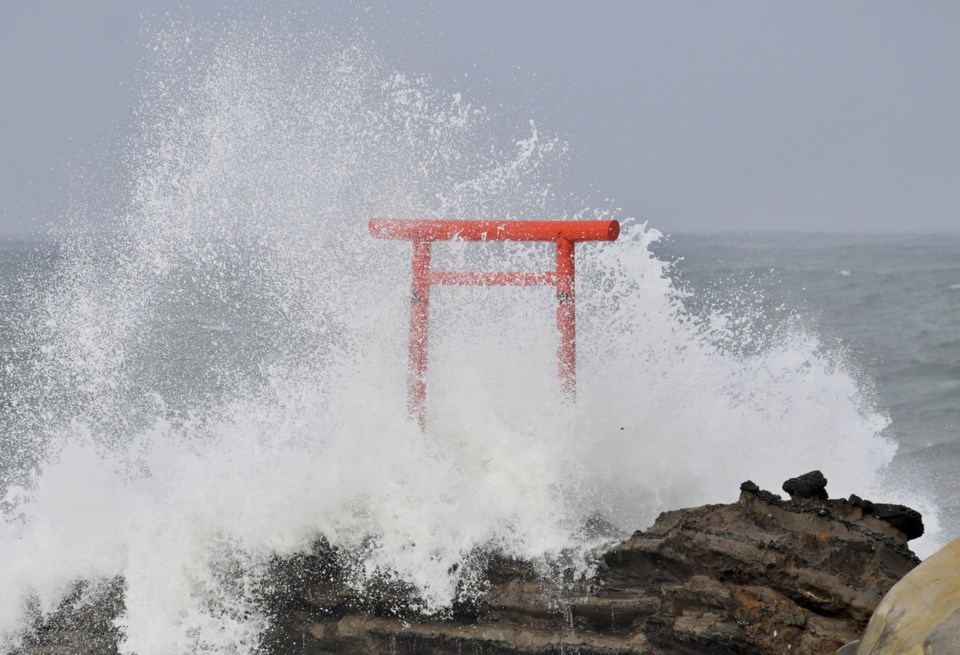TOKYO (AP) — A powerful typhoon that slammed the Tokyo area with heavy rains and brought mudslide warnings in northern Japan headed eastward out into the Pacific Ocean away from the coast Saturday.
There were no reports of major damage. Tokyo and nearby areas were back to normal under sunny skies. Bullet trains that cancelled services between Tokyo and Nagoya, stranding thousands of passengers, resumed operations with the first morning train.
Some local trains were still delayed, however, and dozens of airline flights remained cancelled.
Typhoon Ampil was moving away from Japan’s eastern coast at 20 kph (12 mph), with sustained winds of 162 kph (101 mph), the Japan Meteorological Agency said. Ampil did not make landfall and reached closest to Japan after midnight.
The transportation disruptions came when Japan was observing the Bon summer holidays.
Power that went out in more than 5,000 households was back, except for about 250 homes in Ibaraki and Tochigi prefectures, northeast of Tokyo, according to the utility company.
The typhoon left signboards, trees, bicycles and poles toppled. Some beaches were still off limits to swimmers because of rough seas and strong winds.
The evacuation order for more than 320,000 residents of the city of Iwaki in Fukushima prefecture was lifted. Tokyo’s Disneyland, which closed early on Friday, was back in business at the regular hours of 9 a.m. to 9 p.m.
Yamato Transport, which makes Amazon and other deliveries in Japan, said the halted deliveries in the Tokyo area were back but delayed, while some deliveries were temporarily discontinued in northern Japan.
Caution was advised about fragile buildings that could collapse as well as landslides. Heavy rains and thunder still threatened northern Japan.
Weather forecasters turned to warning people of extremely hot temperatures, which often follow storms, reaching as high as 38 degrees Celsius (100 degrees Fahrenheit) in the Tokyo area, and advised people to take plenty of fluids.
___
Yuri Kageyama is on X: https://x.com/yurikageyama
Yuri Kageyama, The Associated Press




